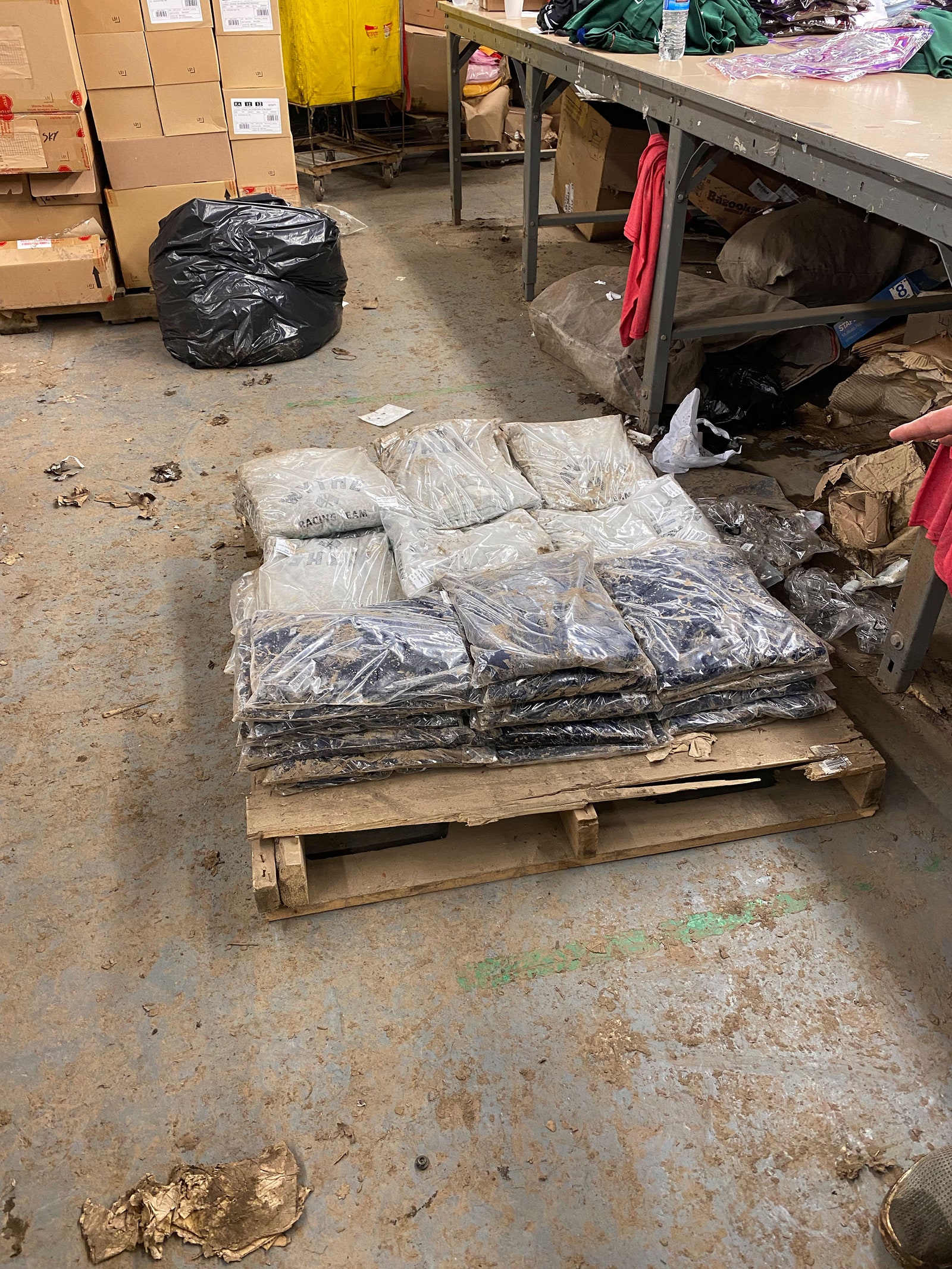When Peter Middleton launched his label Wythe at a trade show in January of 2020, the response was better than he could have hoped for. The holy
trinity of Japanese retailers — Beams, United Arrows, and Ships — all expressed interest in carrying his collection of classic American sportswear sprinkled with just a hint of sepia-tinged nostalgia. . He’d won the approval of stores spoken about with hushed reverence in menswear circles, and that carry clothing that tells a story. All this seemed to bode well for the fledgling brand, and Middleton could count a win right out of the gate. “I was like, ‘Holy shit, I’ve made it!,’” Middleton told me last week.
Then March 2020 came along and, well, you know the rest.
And while the last year and a half has certainly been difficult to navigate, Middleton got yet another bout of bad news earlier this month when Hurricane Ida blew through the northeast, leaving flash floods in its wake. Middleton got a call from the New Jersey warehouse he was using to store his fall 2021 collection. Those pieces, which were about to be shipped to his wholesale accounts, had been placed on low shelves, and were now floating in two feet of muddy water, like a soup of T-shirts and oxfords.
Looks gross, but the plastic packaging just might have saved these clothes.
Courtesy of WYTHEYou could call Middleton the unluckiest guy in menswear. Right after that first trade show his US buying agents called with bad news. “They told me, ‘It sounds like this coronavirus thing is going to be pretty big, so we’re cutting back our fall buy by 80%. Ever since those heady days of early March he’s been playing a global game of Whack-a-Mole, trying to see which of the mills and manufacturers he works with were open for business. Worldwide production delays caused back-ups in production, which was later compounded by a dearth of workers. It didn’t help that his order runs were small, and sometimes were pushed or dropped in favor of bigger ones. Middleton knew that starting his own business wouldn’t be easy, but a plague and then material shortages and production delays and a destabilized global supply chain had made it damn near impossible.
“This has been the dream since I was a kid: Can I create things that I think are beautiful?” he said. “And can I create enough of them that other people have the opportunity to buy them? The ultimate goal is to see the things I'm creating in the wild and in the streets. The dream is not looking at these spreadsheets and figuring out which loans I can take — should I take a loan on 8% or 7%? But that's part of the business. Not being like a venture backed brand, you have to do everything yourself.”
The fashion industry is so large and sprawling that it can be hard to get your mind around all the strange corners of the world it touches. You look at a sturdy button-up in a store and never think about things like tariff prices, or customs agents inspecting paperwork and boxes. Or the fluctuating market price of shipping, or the way that minor socio-political shifts can send major ripples across that globe that create havoc for a small business like Middleton’s. Over the past 18 months, as the world has grappled with plague, supply chain issues, and, now, the encroaching effects of global warming, you’d be hard pressed to find a better microcosm of these factors at play than Wythe.
Wythe, at its core, specializes in classic menswear fare, with an eye on textiles. Middleton worked at Ralph Lauren for a time in fabric research, a part of the business that Ralph is known to be particularly obsessed with. “How many freakin gray crewneck sweatshirts are out there?” Middleton asked. “Millions. And when you sit down and you're like, man, what does this garment really mean? Why is a gray crewneck sweatshirt a wardrobe staple? Why has this stayed with us for so long? Why does it resonate with everyone? And then you look at what's available and there's a pretty big disconnect there.”
Instagram content
So he wanted to make clothing in the tradition of classic American menswear, with a bit of historical detail, and an emphasis on quality, but without any theatrical posturing. “I want to make a garment that is completely wearable and doesn't read as costumey,” he said. On his website, each product — from a chambray work shirt to a pair of pleated linen twill chinos to a slouchy tee made from 5-oz. organic cotton jersey — is accompanied with an encyclopedic amount of background. I don’t think Middledton would be annoyed if I said that he’s a menswear nerd making clothes for fellow menswear nerds. And when he first made a small capsule of shirts back in 2019 that proved popular, his future looked bright. Earlier this week, menswear maestro Michael Williams asked, in his A Continuous Lean newsletter, “Is Wythe a (micro) indie Ralph Lauren?”

